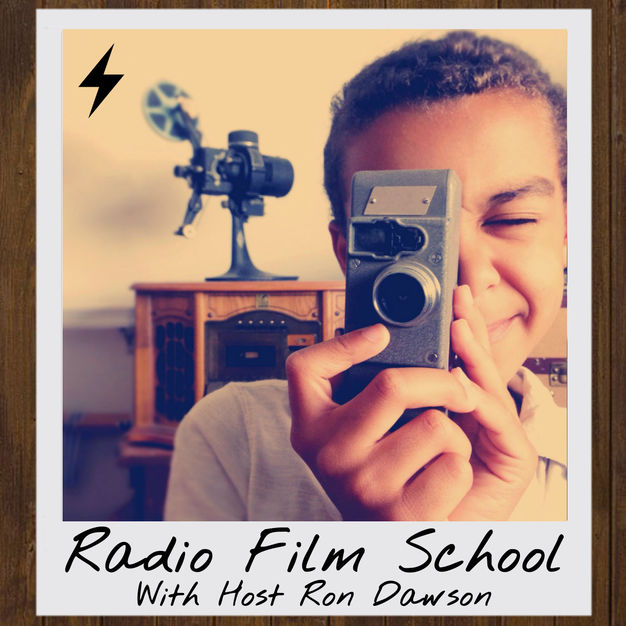
Radio Film School
Ron Dawson
This is the radio documentary anthology series about filmmaking, cinema, and the creative arts. Every week we bring you personal, passionate, and sometimes provocative stories from filmmakers and artists all over the globe; stories that will help you mature as an artist and find more fulfillment in your craft and career. NoFilmSchool called this "The filmmaking podcast we've all been waiting for." //
- 29 minutes 47 seconds[FJ31] Love, Loss & Looking Ahead
What is it like working with your spouse? Why is it important to create art that is unique to you? What is the future of Radio Film School? Tune in to find out.
"If we make what we know to be true for ourselves, that edge gives it an individuality that can't be found anywhere else." ~ Kelly Clark, Artist
It has been quite a while since we've had a new episode of the show. A lot has been going on with me. New job (blog editor for Frame.io), moving out of my house, and becoming a nomad. But for this season finale, we have something that'll make you laugh and cry. And isn't that what makes a Radio Film School episode special?
Video Mentioned in This Episode
The profile film for Kelly Clark.
Music in this Episode
Music was curated from FreeMusicArchive.org . In order of appearance, the music in this episode was:
- Laserdisc by Chris Zabriskie (CC BY)
- Little Lily Swing by Tri-Tachyon (CC BY)
- Daylight PON II by Kai-Engel (CC BY)
- Endless Story about Sun and Moon by Kai-Engel (CC BY-SA-NC)
- Getting Paid Part II by Alec's Band (CC BY)
Click here to learn about Creative Commons licenses and meanings.
Save Big on Your Next Gig
If you have a film or photo shoot here in the U.S., look no further than Lens Pro To Go for all your rental needs. Get premium service and support from people who are themselves working filmmakers and photographers. Podcast listeners get a 10% discount when you use the offer code "radio."
3 August 2017, 4:52 am - 27 minutes 37 seconds[FJ10-REPLAY] What Makes a Good Story?
A blast from the past. One of my personal faves. Insightful. Inspiring. Potent. Definitely worth listening to again. And if it's your first time, enjoy.
This week on the show we delve into one of the most important topics we’ll discuss all season. It’s at the core of what we do as filmmakers. Telling stories. Chris Huntley from The Write Bros. talks about the narrative story development theory Dramatica and the connection story has to psychology. We’ll hear from Patrick Moreau of Muse Storytelling and Stillmotion on how they find and tell the kind of stories that have won them five Emmys. We’ll hear from Dan Duncan of Remedy Films on the lengths he goes to tell authentic stories. And we hear from a filmmaker we last heard from way back in the first main episode — Alex Vo from the San Francisco Bay Area shares how he finds real life “Hero’s Journey” stories.
Music in this Episode
Except where noted, music in this episode was curated from FreeMusicArchive.org. In order of appearance:
- Batched in the Light by Kevin MacLeod. CC BY
- Rewound by Chris Zabriske. CC BY
- In Time by Stellardrone. CC BY
- I am a Man Who Will Fight for Your Honor by Chris Zabriske. CC BY
- Please Listen Carefully by Jahzzar. CC BY-SA
- House of Latin by Mark Stone. Courtesy of Song Freedom. All rights reserved.
- She Does Her Best (feat. Small Colin) by Six Umbrellas. CC BY-SA
- Laserdisc by Chris Zabriskie. CC BY
- I am Running with Temporary Success from a Montrous Vacuum in Pursuit by Chris Zabriskie. CC BY
20 June 2017, 2:36 pm - 33 minutes 17 seconds[FJ Replay] A Look Back Celebrating 15 Years of My Video Biz
This May marks the 15th anniversary of my video business and this summer marks the 25th anniversary of going to film school. Wow!
This past weekend was Memorial Day so I had just enough time to put together a flashback to some past episode segments. In this 15th/25th anniversary special, I replay the story of my first time on a film set (from RFS004 "Your First Time") and the start and evolution of my video business (from FJ24 "Making a Difference with Your Art"). As usual, stick around after the credits for a fun discussion with friend of the show JD Cochran and I reminiscing on making my first narrative, scripted short film.
Music in this Episode
Music was curated from FreeMusicArchive.org:
- Shower Scene (Instrumental Version)by Josh Woodward (CC BY)
- Preachin' Dem Blues by The Good Lawdz (CC BY-SA)
- Air Hockey Saloon by Chris Zabriskie (CC BY)
- Ground Cayenne by The Good Lawdz (CC BY-SA)
- My Girl by The Temptations Courtesy of Song Freedom. All rights reserved.
- What Does Anybody Know About Anything by Chris Zabriskie (CC BY)
- Daylight (PON II) by Kai Engel (CC BY)
Click here to learn about Creative Commons licenses and meanings.
Save Big On Your Next Gig
If you have a film or photo shoot here in the U.S., look no further than Lens Pro To Go for all your rental needs. Get premium service and support from people who are themselves working filmmakers and photographers. Podcast listeners get a 10% discount when you use the offer code "radio."
30 May 2017, 4:18 pm - 34 minutes 26 seconds[MAD05] Making a Documentary #5: Giving Credit
A popular reward level for crowdfunded films is a credit in the movie. Apparently, this is a bigger deal than I originally thought. Today we find out why.
In this episode of our "Making a Documentary" mini-series of Radio Film School, friend of the show Yolanda T. Cochran (with her husband JD offering his usual comic relief) gives us some detailed information on film and television credits. If you have thought about giving away a movie credit on your crowdfunded film for anything less than at LEAST $100 (or more), you need to listen to this episode. Or, if you're curious about union regulations regarding credits, or just the logistics that go into making credits, then stick around. It's actually pretty fascinating.
The Role of "Producer"
Ever wonder what all those different "producers" you see in movie credits actually do? The second half of this episode is a replay of a "Short Ends" segment from last year wherein Yolanda tells us. Get the 411 on executive producers, co-producers, producers, line producers, etc.
Music in this Episode
Music was curated from Kevin MacLeod's Incompetch.com and FreeMusicArchive.org. In order of appearance, the music in this episode was:
- Please Listen Carefully by Jahzzar (CC BY-SA)
- Boulevard St. Germain by Jahzzar (CC BY-SA)
- Fire Ahead by Jahzzar (CC BY-SA)
Click here to learn about Creative Commons licenses and meanings.
Save Big on Your Next Gig
If you have a film or photo shoot here in the U.S., look no further than Lens Pro To Go for all your rental needs. Get premium service and support from people who are themselves working filmmakers and photographers. Podcast listeners get a 10% discount when you use the offer code "radio."
23 May 2017, 2:39 pm - 33 minutes 55 seconds[SE28] MCU v DCEU and Lessons for Creators
Today we explore why the Marvel Cinematic Universe has been able to out-pace the DC Extended Universe in box office and critical acclaim, and what lessons we creators can learn from it.
Throughout history, there have been some pretty epic rivalries. Mac vs. PC. Canon vs. Nikon. Marvel vs. DC. There's a lot of discussion and analysis on the internet about this latest topic, specifically the MCU vs. the DCEU. And on this episode of the show, we hear from some experts who help us contribute to that debate. In the end, you'll hear a perspective about how to look at it that I almost guarantee you've never considered.
This week we hear from:
- Robert Meyer Burnett: A 25+ year veteran of Hollywood, Rob is a director, editor, frequent co-host on Collider Heroes, and self-proclaimed comic book geek.
- Edu Black: production coordinator on "The Simpsons," one of my co-hosts on the "Wrestling with Westworld" podcast, and huge comic fan.
- Jevon Phillips: online producer and writer for the L.A. Times Calendar section writing about entertainment.
- Brett Culp: director of the documentary “Legends of the Knight“, a feature-length documentary about the legend and story of Batman inspiring people living with debilitating or even life-threatening illnesses. Through the success of that film, Brett has since founded “The Rising Heroes Project,” a non-profit that creates uplifting films to support charitable organizations and inspire communities. They are currently touring with their follow-up to “Legends” with “Look to the Sky.”
Music in this Episode
Music was curated from Kevin MacLeod's Incompetch.com and FreeMusicArchive.org. In order of appearance, the music in this episode was:
- Bernard FINALby Ian Alex Mac (CC BY)
- Marhababy Ian Alex Mac (CC BY)
- Perspectivesby Kevin MacLeod (CC BY)
- Hero Downby Kevin MacLeod (CC BY)
Click here to learn about Creative Commons licenses and meanings.
Save Big on Your Next Gig
If you have a film or photo shoot here in the U.S., look no further than Lens Pro To Go for all your rental needs. Get premium service and support from people who are themselves working filmmakers and photographers. Podcast listeners get a 10% discount when you use the offer code "radio."
9 May 2017, 1:22 pm - 42 minutes 40 seconds[BTG08] Breaking the Glass: The Definitive Solution for Change in the Biz
How long will change take? Should we all just settle in and "wait for a new generation"?
Rahm Emmanuel, former White House Chief of Staff, Mayor of Chicago and brother of Ari Emmanual of WME was once quoted in the New York Times saying, "We can't kick the can down the road because we've run out of road." In today's episode, miniseries co-producer and a recurring guest on the show, Yolanda T. Cochran takes the reigns again to ponder what we should realistically expect by way of change in gender parity and politics.
Fellow podcaster, Julie Harris Walker (of "the other 50%" - a Herstory of Hollywood and Herstory of Tech) joins us in the early days of her podcast to share thoughts on: what she's learned from talking to women executives in the business, where the women's movement may have had some shortcomings, and what the outlook of change is looking like.
Likewise, Courtney Daniels, actress, producer and founder of Busted Buggy Entertainment gives some input on whether a "united front" from women is either viable or effective for women in high places in the biz.
And finally, an excerpt from Ryan Murphy's acceptance speech for The Hollywood Reporter's inaugural Equity in Entertainment award makes a case for the argument that patience may not be a virtue.
About the Mini-series
Breaking the Glass is a Radio Film School podcast mini-series and short film docu-series addressing the issues of gender inequality in film and television. You can catch all the podcast and video episodes at daredreamer.fm/breakingtheglass.
Support Our Sponsors and You Support the Show
Song Freedom: when you need high-quality music for your productions, including mainstream music as well as “oldies but goodies”. Sign up for a new account at songfreedom.com/radio and get a free standard gold level license worth $30.
VideoBlocks: a subscription-based stock media company that gives you unlimited access to premium stock footage everyone can afford. Unlimited daily downloads from a library of 115,000+ HD video clips, After Effects templates, motion backgrounds, and cinemagraphs. Click here for a 7-day free trial allowing you to download up to 140 pieces of content. You can also sign up for their annual plan which is $99 for unlimited access to their library.
Music
Music in this episode was curated from FreeMusicArchive.org. Songs in order of appearance were:
- Little Wooden Churchby The Trumpeteers (CC BY)
- Night on the Docksby Kevin MacLeod (CC BY)
- Explodeby Kellee Maize (CC BY)
- Pigalleby Jahzzar (CC BY-SA)
- Julyby Kai Engel (CC BY)
- Sunsetby Kai Engel (CC BY)
- Takeoverby Kellee Maize (CC BY)
4 May 2017, 1:00 pm - 26 minutes 49 seconds[SE27] Pepsi's Challenge: Brand Authenticity & Knowing Your Audience
The #1 question I've had about the ridiculous Pepsi ad from a month ago is "How?" How did so many smart people in a room get this so wrong? I think today's episode of Radio Film School has some potential answers.
I wanted to talk to some professionals who could give us informed and experienced insight into this debacle and PR mess. So I got on the line with Blake Howard, Creative Director of Matchsic, a brand consulting and design firm who has done work for companies like Coke and other national brands; and Chris Chan, the resident visual anthropologist at the viral video factory and social experiment production company Cut. They provide some new perspective on a topic that admittedly has been discussed ad nauseam. But I'm confident you'll dig this one!
Music in this Episode
Music was curated from Kevin MacLeod's Incompetch.com and FreeMusicArchive.org. In order of appearance, the music in this episode was:
- “Overcast” by Kevin MacLeod (CC BY)
- “Lucid Streaming” by Graham Bole (CC BY)
- “Kool Kats” by Kevin MacLeod (CC BY)
- “Daybreak” by Kevin MacLeod (CC BY)
- “Lobby Time” by Kevin MacLeod (CC BY)
Click here to learn about Creative Commons licenses and meanings.
SAVE BIG ON YOUR NEXT GIG
If you have a film or photo shoot here in the U.S., look no further than Lens Pro To Go for all your rental needs. Get premium service and support from people who are themselves working filmmakers and photographers. Podcast listeners get a 10% discount when you use the offer code "radio."
2 May 2017, 6:43 am - 24 minutes 32 seconds[SE26] Technology & Filmmaking: Form Following Function
It's NAB this week, and we have a new technology and filmmaking episode you must hear before you spend a dime!
Because the nature of this show involves taking bits and pieces of longer episodes, I have a veritable vault full of as yet unmined content from fantastic interviews. In honor of it being NAB this week (that annual mecca to Las Vegas for media professionals all over the world), we have as yet unaired excerpts from interviews I conducted last season.
Peabody award-winning filmmaker and documentarian Elaine McMillion Sheldon, who won that acclaimed award for her interactive documentary experience "Hollow", chimes in on how the architectural design concept of "form following function" should be applied to storytelling and technology. Also, Seattle Film Institute executive director David Shulman uses makes an appearance with an example of how a master's approach to filmmaking can be applied to our use of the latest and greatest. And it all starts with a simple (or not so simple) question asked by my 12-year-old aspiring filmmaking son.
Music in this Episode
Music was curated from FreeMusicArchive.org. In order of appearance, the music in this episode was:
- Gettin' Paid, Pt. IIby Alec's Band (cc by)
- Remember Trees?by Chris Zabriskie (cc by)
- Here's the Thingby Lee Rosevere (cc by)
- Stories About the World That Once Wasby Chris Zabriskie (cc by)
- Denouementby Kai Engel (cc by)
- I Believe in Youby Lee Rosevere (cc by)
- All Your Faustian Bargains (Extended Mix)by Steve Combs
Click here to learn about Creative Commons licenses and meanings.
SAVE BIG ON YOUR NEXT GIG
If you have a film or photo shoot here in the U.S., look no further than Lens Pro To Go for all your rental needs. Get premium service and support from people who are themselves working filmmakers and photographers. Podcast listeners get a 10% discount when you use the offer code "radio.
25 April 2017, 3:07 pm - 16 minutes 30 seconds[MAD Bonus] Kickstarter Video Feedback
In this bonus episode of our "Making a Documentary" miniseries, I read feedback on our Kickstarter video from Amina Moreau of the Emmy award-winning studio Stillmotion, as well as from Patrick Moreau of Muse Storytelling. Show regulars JD and Yolanda Cochran chime in with their 2 cents as well. If you haven't listened to episode 4 of the miniseries, you may want to go listen to that first.
Click here to see the current version of the crowdfunding video.
Visit the Videos section of the Invisible Illness Film website to see the other short video vignettes JD references ("There Must Be a Reason" and "What It Means to Thrive").
Music in this episode was "And So Then" by Lee Rosevere (CC BY).
20 April 2017, 12:44 pm - 44 minutes 43 seconds[MAD04] Making a Documentary - Getting Feedback
Feedback, in all of its forms, is essential for any artist to grow in his or her craft.
This week we have part 4 of our “Making a Documentary” miniseries, wherein we document the making of my first low-budget <del>feature-length</del> documentary "Invisible Illness." During this series, it's my goal to share not only what I've learned, but what other documentary filmmakers have learned.
On this episode, we have the second part of my interview with Vincent Vittorio, CEO and founder of Life is My Movie. Vincent gives some specific feedback on our crowdfunding video and our plans for the film in general. He also poses a question about the format of the film that has a profound impact on the direction we take it. Show regular JD Cochran throws in his two cents as well. Here's the current version of our crowdfunding video.
Music in this Episode
Music was curated from FreeMusicArchive.org. In order of appearance, the music in this episode was:
- Monkeys Spinning Monkeysby Kevin MacLeod (CC BY)
- And So Thenby Lee Rosevere (CC BY)
- In A Momentby Lee Rosevere (CC BY)
- The Secret to Growing Upby Lee Rosevere (CC BY)
- Making A Changeby Lee Rosevere (CC BY)
Click here to learn about Creative Commons licenses and meanings.
12 April 2017, 8:14 pm - 21 minutes 4 seconds[SE05-Replay] It's Personal: The Power & Importance of Personal Work
This was one of my favorite episodes from season 1. Interviews with...
- Dan Riordan and Dana Saint of Gnarly Bay
- Canadian filmmaker Bren Foster of "While I'm Here: The Legacy Project"
- Brandon McCormick of Whitestone Motion Pictures
Original air date October 2015. See music credits and original show notes on the blog.
28 March 2017, 1:00 pm - More Episodes? Get the App
Your feedback is valuable to us. Should you encounter any bugs, glitches, lack of functionality or other problems, please email us on [email protected] or join Moon.FM Telegram Group where you can talk directly to the dev team who are happy to answer any queries.
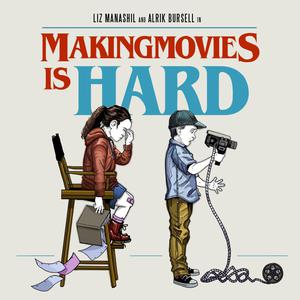 Making Movies is HARD!!!: The Struggles of Indie Filmmaking
Making Movies is HARD!!!: The Struggles of Indie Filmmaking
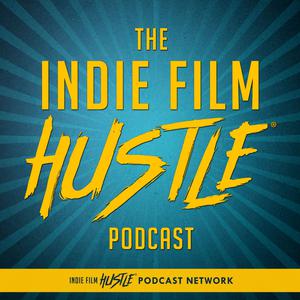 Indie Film Hustle® - A Filmmaking Podcast
Indie Film Hustle® - A Filmmaking Podcast
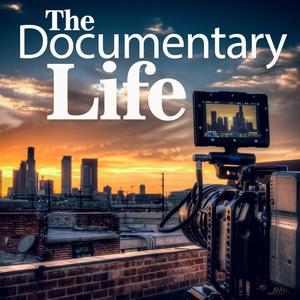 The Documentary Life
The Documentary Life
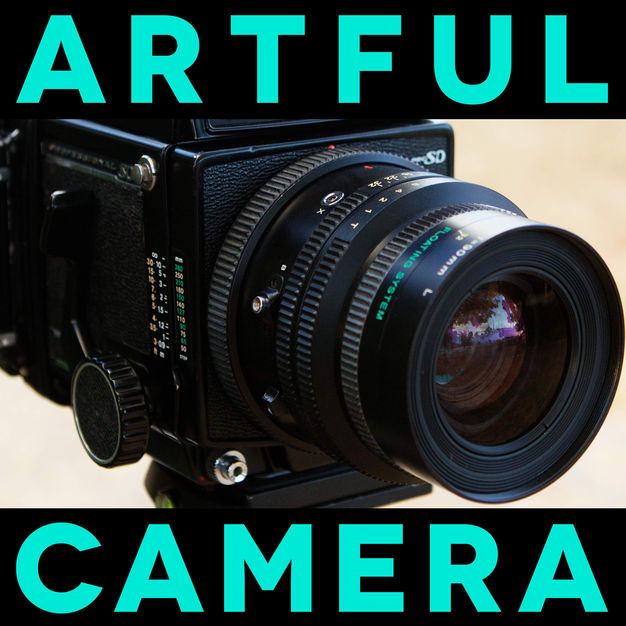 Artful Camera
Artful Camera
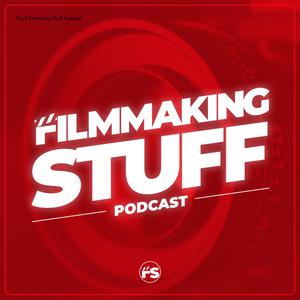 The Filmmaking Stuff Podcast
The Filmmaking Stuff Podcast
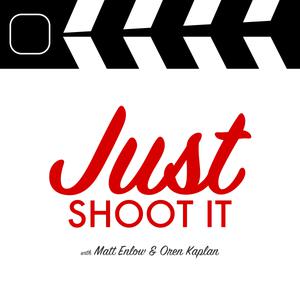 Just Shoot It: A Podcast about Filmmaking, Screenwriting and Directing
Just Shoot It: A Podcast about Filmmaking, Screenwriting and Directing